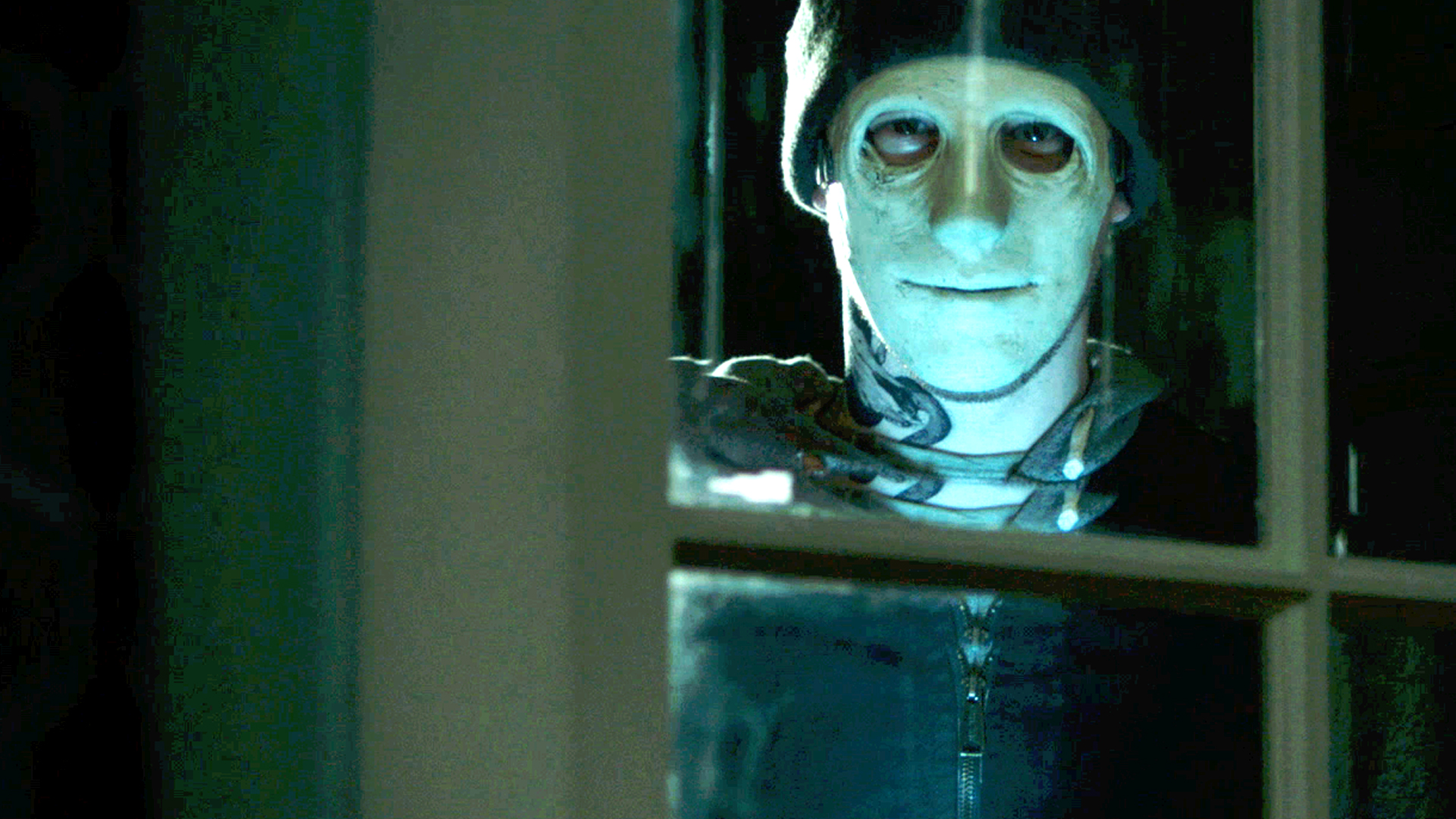
Hush is a horror film that Netflix has recently bestowed upon the masses—the masses that are eager to watch another survival horror film set to the backdrop of nihilism. Nothing matters, as Maddie, the protagonist with “writer brain” (that is, a mind that peeks at a plot and imagines all possible endings, choosing the best one to put on paper), transitions from scrambling to finish her latest novel to scrambling to defeat an unnamed assailant before he kills her.
Essentially, a masked stranger descends upon Maddie’s home, tucked away in the woods, and proceeds to carry out his undisclosed plan that is to result in her death. To top it all off, Maddie is deaf. He clips her access to the Internet and cell service, electricity, and takes her phone away. Armed with a cross bow and knife (two of the most inefficient weapons of all time for a serial killer to bring to a remote cabin), he stalks the outside perimeters of the house, waiting until “it’s time” to kill her—that is, when she has lost all hope and wants to die. She reminds him that he could still choose to leave her alone because she hasn’t seen his face and won’t tell anyone about the incident. As hard as that would be for our masked villain to believe, he nevertheless removes his mask and says, “now you have.” And with that the audience gasps as the nonsensical plot thickens.

The movie continues to unfold with Maddie making the worst possible decisions imaginable and the unmasked antagonist proceeding to terrify and scare and stalk her from the outside of her house. The sly killer that seemed mysterious and efficient from the onset slowly became human, most vividly when removing his mask, showing his face to Maddie and the audience. From then on, his firm grasp on the situation slowly slipped away. He lost control and he died because of it. Maddie survives and the final scene ends with a close-up of her face, wearing a bloody smile. Leaving us all to ponder who was torturing whom?
The central problem with the film’s assumptions is that Maddie isn’t the only one being tortured. She is being tortured, don’t get me wrong, but so is the audience and so is the murderer. After all, the whole movie is an endless string of shots that feature Maddie and the killer in their various locations, both seeking to out-maneuver the other, and with the camera as the medium through which the audience is exposed to these two intolerable characters orbiting each other in the dark, the audience is thereby grafted into their meaningless spiral. There are countless times that Maddie could have eliminated the killer, or that the killer could’ve eliminated Maddie, and the audience perceives this. But that isn’t the point of the movie; its point is to sustain the film’s unpleasant plot “until it’s time” to just barge in and put an end to it. After all, this film isn’t just an unpleasant experience because it depicts a dual between two minds that have chosen fight over flight; it’s unpleasant simply because of the absurdity of that which the film choses to put forth in order to sustain the tension in a plot that hasn’t even been explained to begin with. And this shows with the few other characters that are introduced for seemingly no other reason than to plunge the audience further into unmitigated irritation. The painfully absurd scene where John gives his phone to the killer, believing that he’s actually just a police officer responding to a break-in call, is just one example in which the audience has to be sliding back from the edge of their seats and into a cloud of frustration.

While this film is fun to watch, especially with friends, the voices of other possible endings won’t hush in one’s head. It seems implausible and yet fitting, for there was never a motive for or satisfactory resolution of the plot. In the end, all possible options, as Maddie remarked, will result in the same outcome. This movie has no meaning and no significance. It’s just a conglomerate of unpleasant absurdity, and no one—not even the audience—can avoid that ending. Far from being intended as another horror-bashing review of a lower-budget film that frankly wasn’t intended to ever win an Oscar to begin with, this is instead written to diagnose a larger phenomenon in which this movie epitomizes. Horror flicks of this nature are always laborious to watch with a logically rigorous mind, so that isn’t unexpected or any more unpleasant than what’s typical. However, this movie induced an epiphany in my mind—the mask removed so to say; namely, this movie is indicative of lazy horror pushed to its extreme. It’s so immensely frustrating to watch another film, with such promise and popularity, once again, serve as nothing but the catalyst toward artistic nihilism.





